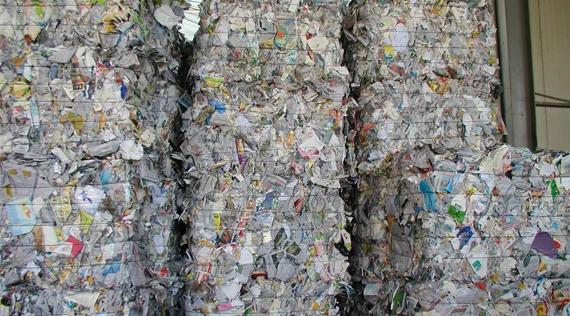
SEATTLE (Waste 360): Neste, a producer of renewable diesel, is exploring ways to introduce liquefied waste plastic as a future raw material for fossil refining. The aim of the development project is to proceed to industrial scale trial during 2019. The company’s target is to process annually more than one million tons of waste plastic by 2030.
"Neste has been ranked the world's second most sustainable company, and we are already the world's largest producer of renewable diesel from waste and residues. Our target is to also be a leader in low-carbon refining and support circular economy by developing innovative solutions based on waste plastic," said Matti Lehmus, executive vice president of Neste’s oil products business area, in a statement. “With our strong legacy in raw material and pre-treatment research, we are in a unique position to introduce waste plastics as a new raw material for fossil refining. At the same time, we aim to provide solutions to support global plastic waste reduction.”
Neste noted that using waste plastic as a raw material increases material efficiency, reduces crude oil dependency and carbon footprint of products based on such raw material.
In Europe, some 27 million tons of post-consumer plastic waste is generated annually. Only about one-third of this amount is currently collected for recycling, Neste stated.
In January 2018, the European Union released its "Strategy for Plastics in a Circular Economy." One of its objectives is to increase recycling of plastics and reuse of plastic packaging by 2030. In the EU Waste package, recycling target for plastic packaging was raised to 50 percent by 2025 and 55 percent by 2030.
In addition to exploring ways to utilize plastic waste as raw material, Neste stated it is producing durable and recyclable renewable plastics from bio-based raw materials, such as waste fats and oils. As an example, Neste and IKEA will produce polypropylene plastic from fossil-free, bio-based raw materials at commercial scale during fall 2018.
Courtesy: https://waste360.com
| Copper Scrap View All | |
| Alternator | 0.31 (0) |
| #1 Copper Bare Bright | 3.70 (0.05) |
| Aluminum Scrap View All | |
| 356 Aluminum Wheels (Clean) | 0.71 (0) |
| 6061 Extrusions | 0.62 (0) |
| Steel Scrap View All | |
| #1 Bundle | 475.00 (0) |
| #1 Busheling | 495.00 (0) |
| Electronics Scrap View All | |